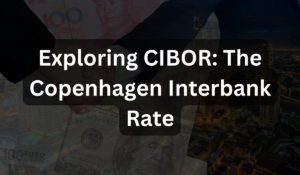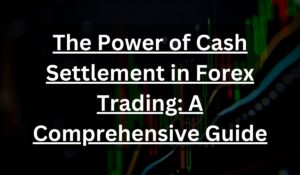Cognitive Biases and Their Effects
Cognitive biases are psychological tendencies that can affect how traders analyze information and make decisions. Let’s delve into some of the most common biases and their effects on trading:
Anchor Bias
This bias occurs when traders give excessive weight to the initial information they receive, failing to properly evaluate new information. It can lead to holding onto losing positions or missing signs of changing market conditions.
The Effect of the Last Event
Traders tend to place more importance on recent events rather than considering historical data. Overreacting to recent losses can result in emotional decision-making and impede long-term trading success.
Confirmation Bias
Traders have a natural tendency to seek out and prioritize information that confirms their existing beliefs or trading decisions. This bias can prevent them from objectively assessing market conditions and lead to the avoidance of contrary viewpoints.
Drag Effect
The drag effect occurs when traders rely heavily on external opinions, such as media or social media, instead of conducting their own analysis. Following the crowd can lead to herd mentality and impulsive trading decisions.
Risk Aversion
Traders often prioritize avoiding losses over maximizing profits. This bias can result in missed trading opportunities and overly defensive risk management strategies.
Result Bias
Traders tend to judge the quality of a decision solely based on the outcome, rather than evaluating the decision-making process. This bias can reinforce poor trading habits if rewarded by chance, leading to repeated mistakes.
Fallacy of the Player
This bias involves the misinterpretation of randomness and the belief that past events alter the probabilities of future outcomes. Traders may mistakenly assume that a series of losses increases the likelihood of a winning trade.
Overcoming Cognitive Biases
To mitigate the impact of cognitive biases on trading decisions, it’s crucial to develop self-awareness and implement effective strategies. Here are some approaches to overcome cognitive biases:
Create a Trading Plan
Before entering trades, establish a well-defined trading plan that includes entry and exit criteria. Having a written plan helps to counteract anchor bias and facilitates objective decision-making.
Analyze New Information
Continuously evaluate new information in the context of your trading plan. Avoid selectively considering only information that supports your existing beliefs (confirmation bias) and be open to alternative viewpoints.
Maintain a Trading Journal
Keep a detailed record of your trades, including the rationale behind each decision. Regularly review your trading journal to identify patterns, biases, and areas for improvement.
Seek Diverse Perspectives
Engage with a community of traders or mentors who can provide different perspectives and challenge your assumptions. This helps counteract the drag effect and promotes critical thinking.
Embrace Losses
View losses as an inherent part of trading and an opportunity for learning. Develop a mindset that focuses on long-term profitability rather than short-term outcomes (risk aversion and result bias).
Focus on Process, Not Outcome
Evaluate your decision-making process rather than solely relying on the outcome of individual trades. Emphasize disciplined market analysis, effective risk management, and adherence to your trading plan.
Stay Objective
Continuously remind yourself to remain objective and avoid emotions when making trading decisions. Be aware of biases such as the effect of the last event and fallacy of the player.
Key Takeaways
- Cognitive biases can significantly impact a trader’s decision-making and overall trading performance.
- Awareness of common biases such as anchor bias, confirmation bias, and result bias is essential for traders.
- Overcoming cognitive biases requires self-awareness, a well-defined trading plan, and a commitment to objective analysis.
- Maintaining a trading journal and seeking diverse perspectives can help identify and address biases.
- Embracing losses as learning opportunities and focusing on the trading process rather than the outcome are key to long-term success.
In conclusion, cognitive biases can have a profound impact on a trader’s ability to make sound decisions. By understanding the biases that affect us and implementing strategies to overcome them, traders can enhance their objectivity, improve decision-making, and ultimately achieve greater success in the dynamic world of trading








